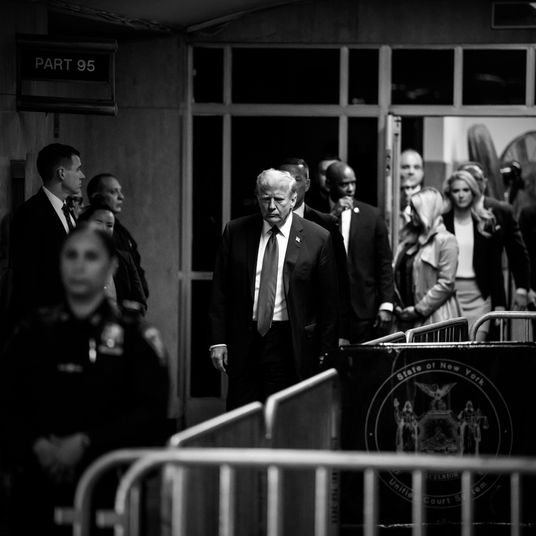
Israel is often touted as the only democracy in the Middle East. On the face of it, this is largely true — Lebanon, for instance, is also a democracy, but its system is complicated and deeply dysfunctional. Israel has certainly been the most functional democracy in the region throughout its history. But now, after four national elections in two years, none of which has produced a workable government, Israel is looking a lot less functional and a lot more like its neighbors.
Benjamin Netanyahu’s Likud Party took the largest number of Knesset seats in Tuesday’s election, but not enough to form a majority in the 120-seat chamber. The embattled prime minister is now scrambling to form a governing coalition from a dwindling pool of available allies. Likud and its right-wing religious and nationalist allies have 52 seats among them, while the opposition coalition has 57. The wild cards are Yamina, a right-wing nationalist party led by Netanyahu’s former cabinet member turned rival Naftali Bennett, and the United Arab List, an Islamist party led by Mansour Abbas. Yamina has seven seats, so even with Bennett on board, Netanyahu is two seats short of a majority.
Since 2015, Arab parties have run in Israeli elections in a coalition known as the Joint List. This gives these smaller parties and the Arab minority voting bloc a better chance of obtaining seats in the Knesset, as parties need to pass a threshold of votes (currently 3.25 percent) to win any seats at all. The other members of this coalition are mostly secular socialists and Arab nationalists. Abbas’s Islamist party split off from the Joint List this year, and he expressed willingness to work with either the Likud coalition or the center-left camp to form a government that would advance Arab interests.
Initially not expected to cross the threshold, the United Arab List managed to win four seats, making Abbas a potential kingmaker for either side. No independent Arab party has ever entered a governing coalition in Israel before; now, somewhat absurdly, his party is the key to forming any government at all. The trouble is, neither side really wants him — nor is his party necessarily eager to go into government with Israel’s extreme right wing.
Any hopes Netanyahu might have had of forming a government via this unlikely partnership were dashed on Thursday, when Bezalel Smotrich, leader of the far-right Religious Zionist Party, said a right-wing coalition with the United Arab List “will not come about, not on my watch.” Members of Abbas’s and Smotrich’s parties were already leery of working with each other, as they tend to regard each other as genocidal terrorist supporters.
The anti-Netanyahu coalition, meanwhile, is just that: an ideologically incoherent mishmash of left-wing, centrist, and center-right parties united by little more than their mutual hatred for Netanyahu and desire to dethrone him. Led by the centrist Yesh Atid Party, which won 17 seats, it includes the diminished remnants of Israel’s center-left Labor Party, the left-wing Meretz and the Arab Joint List, as well as retired general Benny Gantz’s liberal centrist Blue and White Party. The weirdest members of this bloc are Yisrael Beitenu and New Hope, two center-right nationalist parties that, like Yamina, are led by former Netanyahu lieutenants who split from Likud and became his bitter enemies. Yair Lapid, the leader of Yesh Atid and presumptive PM if he can form a government, is also courting Abbas’s party, which could give his “change coalition” a bare majority. Yet the other members of his coalition are not terribly enthusiastic about partnering with an Islamist party: neither the secular, queer-friendly left nor his nationalist right flank.
If everyone seems to have a problem with you, chances are you’re the problem. However, in Israel right now, the person who needs to learn that lesson is not Mansour Abbas, but rather Netanyahu himself. The Likud leader, who has been prime minister continuously since 2009, has accumulated so much political baggage and proven so divisive that the only salient question in national legislative politics is whether he should stay or go. Had he not so badly alienated the right-leaning legislators who have joined against him, he would be sailing to reelection with a comfortable majority.
Over the past decade, Netanyahu has courted and cultivated Israel’s far right, the better to position himself as the sensible center by comparison. In doing so, however, he made a lot of enemies, driving wedges in the right-wing coalition between conservative secular Zionists and Jewish fundamentalist theocrats. Even as Israel has drifted rightward overall, these divisions have made it harder for him to form stable right-wing governments. Had the center left not splintered even more dramatically, this factionalism might have done him in.
Even his own party is divided over him. For years, ambitious Likudniks have waited in the wings for him to step aside, not least so that they might rise in the party themselves. Gideon Sa’ar, once considered his natural successor, unsuccessfully challenged him for the Likud leadership in 2019, then split off to form New Hope, which is now part of the anti-Netanyahu pseudo-coalition. Yet despite these defections, many of the party’s members and core voters remain fiercely loyal to the prime minister.
Netanyahu is desperate to stay in power because he is in serious legal jeopardy: Back in 2019, he was indicted on charges of bribery, fraud, and breach of trust in relation to a long-running corruption investigation. It was the first time in Israel’s history that a sitting prime minister was criminally charged. The indictment has further divided the country between his die-hard supporters, who buy his claim that the investigation is a politically motivated sham cooked up by the deep state to destroy him politically, and those who see this as yet another good reason to be rid of him. In one of his many parallels to Donald Trump, Netanyahu has clung to the prime ministry, at least in part, to avoid going to prison.
The most likely scenario now is that nobody manages to form a government and a fifth election is called. Yisrael Beiteinu leader Avigdor Lieberman has proposed assembling a Knesset majority to pass legislation that would bar criminal defendants from forming governments, and then holding new elections. This would prevent Netanyahu from serving another term as PM and force Likud to elect a new leader. It would also hopefully lead to a more decisive outcome in the next election, as Israel could finally move on from the drama of the Netanyahu era. Likud, in turn, decried this proposal as an anti-democratic plot to disenfranchise voters who backed Netanyahu for PM regardless of his legal troubles.
If another election is indeed in the offing, there is no guarantee it will produce a clear result. Israel’s political landscape is so fragmented that events no longer seem to push public opinion far enough to give either camp a clear win. For instance, Israel’s experience with COVID-19 should have made a difference, one way or the other. The pandemic hit Israel hard, with multiple successive lockdowns battering its economy and causing social unrest, as ultra-Orthodox Haredi communities, in particular, defied state regulations. Netanyahu was heavily criticized for not taking a harder line in enforcing these regulations on the Haredim, who make up a significant share of the right-wing voting base. As recently as December, COVID politics were looking grim for Netanyahu.
In the past few months, however, things have turned around as Israel’s decision to go all in on vaccinations has paid off: Netanyahu made a deal with Pfizer to get a massive early supply of vaccines quickly, in exchange for sharing extensive data on the vaccine’s rollout and effectiveness, effectively turning Israel into one big clinical trial. By Thursday, the health ministry reported that over half of all Israeli citizens had been fully vaccinated. The success of this initiative should have secured him another term; before the votes were counted on Tuesday, the Jerusalem Post was already crediting the vaccines for his presumed victory.
Not quite, as it turns out. As we Americans have learned the hard way, when your country is deeply divided over one polarizing political figure, the normal rules of politics no longer apply. As long as Netanyahu remains the center of attention, Israel will not be able to move on from the toxic political climate he has created. What comes after him might not be all that progressive, peaceful, or positive, but prospects for any kind of change in Israel will remain dim until he exits the scene.





























